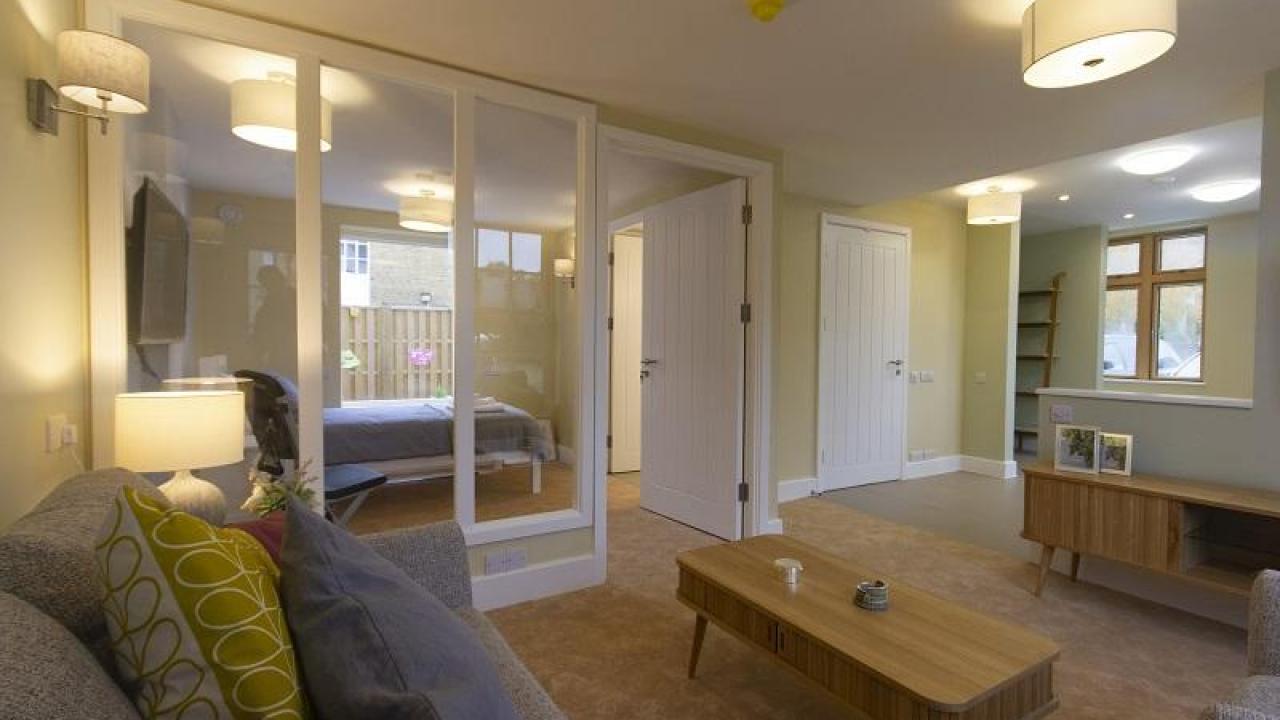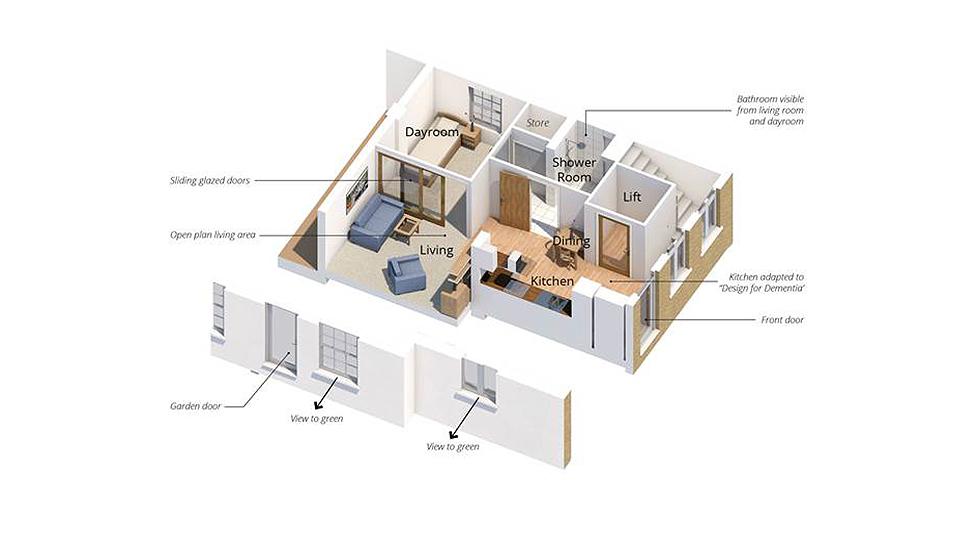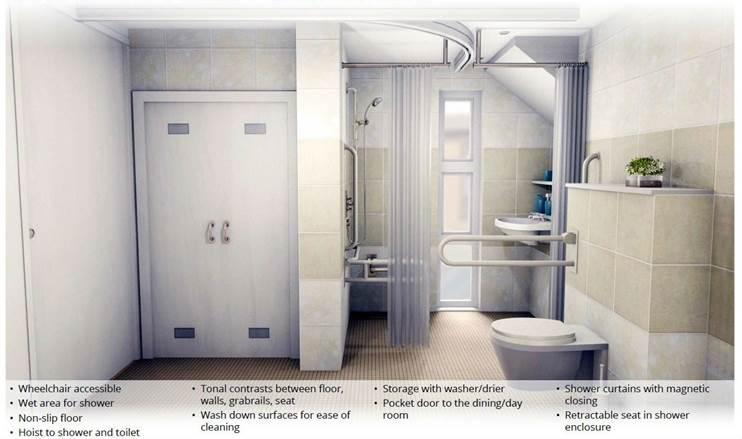

BRE and Loughborough University open dementia-friendly demonstration home
A new ‘dementia-friendly’ home has been developed jointly by leading building science research centre BRE and experts from Loughborough University.
The building is aimed at helping educate housebuilders, carers and relatives on how to better support those living with dementia.
The design is geared to help dementia sufferers remain at home for longer than in a normal home, thus dramatically improving quality of life and reducing the cost of care to the state and relatives.

The home has been formally opened by Lord Richard Best OBE DL, Co-Chair of the All-Party Parliamentary Group on Housing & Care for Older People on the BRE Innovation Park in Watford.
Dementia care costs families around £18 billion a year and affects about 850,000 people in the UK. The figure is expected to rise to more than one million in the UK by 2025. Two-thirds of the cost of dementia is paid by those who suffer from the condition and their families. This is in contrast to other conditions, such as heart disease and cancer, where the NHS provides care that is free at the point of use.
The 100sqm Victorian house has been adapted to cater for different types and stages of dementia, and is aimed at allowing sufferers to live independently by addressing their day-to-day needs.
The upper floor of the home has been adapted for the more advanced stages of dementia. The building design has been developed around the needs of two specific personas (or avatars), Chris and Sally. The design narrative describes how the features of the building have been adapted to support Chris and Sally as they age well at home.
The prototype will be supported by short films detailing how dementia affects Chris and Sally on a good, average and bad day, with different actors re-creating the different stages of dementia. These films have been created by the University of Loughborough.
The dementia-friendly converted terrace house includes:
- Clear lines of sight and colour-coded paths through the home that help guide people towards each specific room
- Increased natural lighting, which is proven to help people stay alert during the day and to sleep better at night
- Automatically controlled natural ventilation to provide good indoor air quality
- Noise reduction features, to reduce stress
- Simple switches and heating controls, and safety sensors in high risk areas such as the kitchen
- Homely, simple and familiar interior design to help promote rest and relaxation
The £300,000 project has been designed by HLP Architects, and is based on the ‘design for dementia principals’ previously developed by Dr. Rob McDonald (Liverpool John Moores University) and Bill Halsall (Halsall Lloyd Partnership).
Moving forward, the home will also be used to assist Loughborough University’s ongoing research into how the features are used, with a view to further improving ways to support homeowners with dementia. Other research partners involved with the project include Akzonobel, John Lewis, Polypipe and ROCKWOOL.
Director of BRE Innovation Parks Dr David Kelly comments: “Many of the ideas put forward in the prototype home are just good sense for us all to incorporate into our properties to adapt to the process of ageing.
"Currently, the average cost of care can be between £30,000 – £40,000 per annum. Creating environments which allow people to live independently at home for longer could save a significant amount. That money could instead be channelled into research that alleviates the condition and reduces the emotional stress to the individual."

The project draws expertise from a number of specialisms at Loughborough, from the schools of architecture, building and civil engineering, design, and sport – and is based on a wealth of dementia research carried out at the University.
Eve Hogervorst, Professor of Psychology at Loughborough is the University’s principal investigator on the project. She comments: "Most people experiencing dementia wish to remain at home, so the design and construction of new dwellings or home conversions are paramount.
"With this project we want to show how design solutions can be to be easily integrated within most current homes and communities to improve people’s lives."

